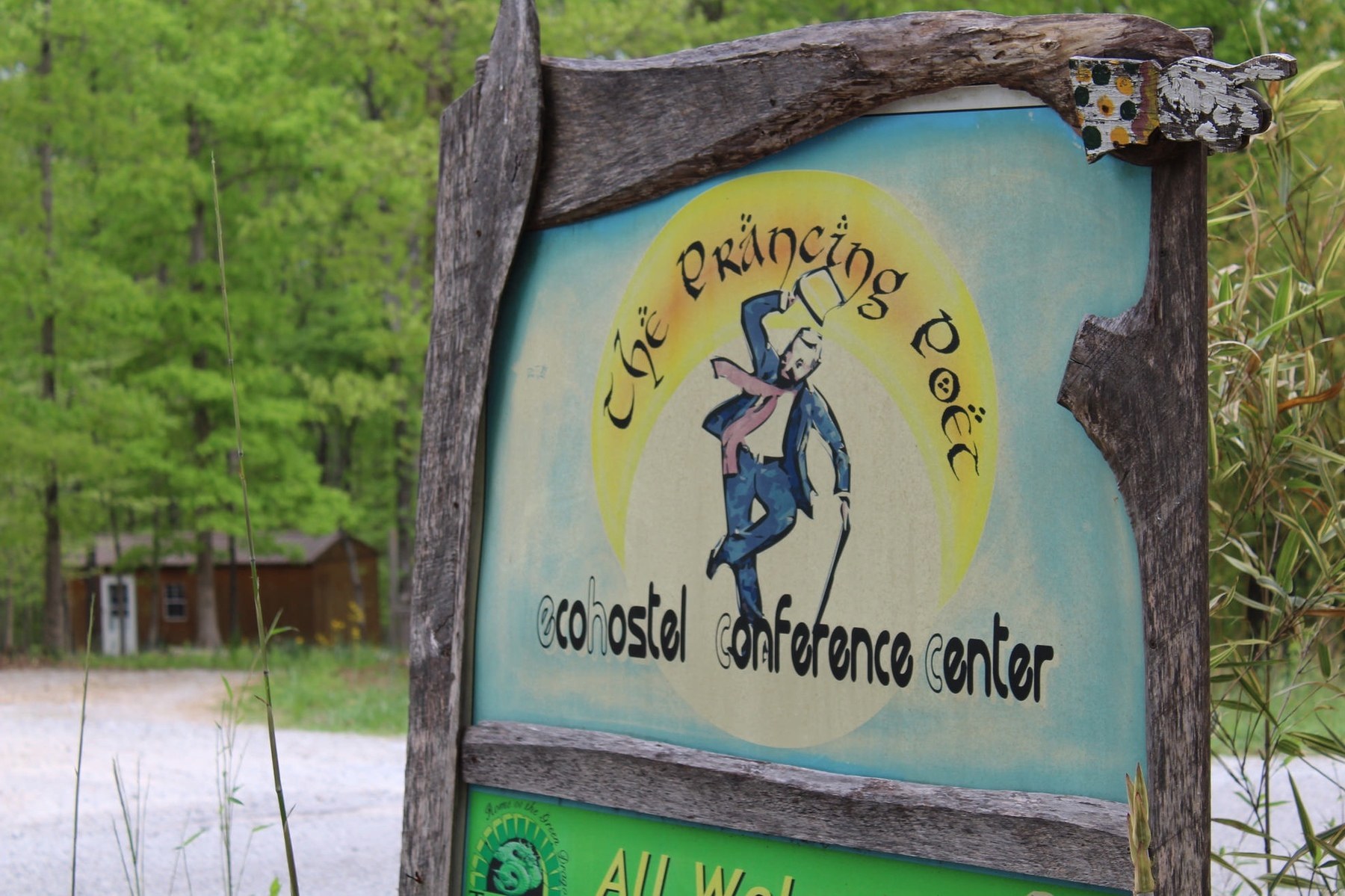The Farm, a modern-day commune, sits just over an hour outside of Nashville and remains a beloved relic of the hippie movement. The beautiful 1,700-acre piece of land was purchased in 1971 by a caravan of hippies from San Francisco, led by charming teacher and former marine Stephen Gaskin. Gaskin had amassed a following of people looking for community, adventure and life in connection with the earth, ultimately leading them out to the Tennessee woods to live in harmony. The Farm was initially registered as a spiritual community, so new residents committed themselves both to Gaskin and to the spiritual ideals he was seeking to uphold — giving back to nature and living in total unity.
At its peak, The Farm housed around 1,200 residents in shared tents, makeshift structures and even the buses that had been driven out from San Francisco. Many residents did not earn money and instead shared the food they could grow — primarily soybean — and got by on little else. Author, artist, activist and volunteer public relations spokesperson Douglas Stevenson experienced this lifestyle firsthand when he and his wife Deborah Flowers came to The Farm in 1973 as 19-year-olds. “The ’70s were like Woodstock,” Douglas says. “Lots of people living pretty rugged lives. We didn’t have electricity, and a lot of people had no running water.” At the time, The Farm’s collective monetary needs primarily relied on the income of those with construction skills and other specialties that proved valuable to the area. Weed was passed around in abundance in pursuit of psychedelic spiritual enlightenment.

However, it became clear in 1983 that this lifestyle was unsustainable. As The Farm’s debt grew, residents faced the threat of losing their land. So they took a step away from the communal living ideal and democratically elected a board to lead in Stephen Gaskin’s place, as well as began requiring residents to pay a monthly fee. This transition dramatically decreased The Farm’s population but set up an infrastructure that would prove efficient enough to carry the commune forward while still preserving its intentions.
“For us, it’s been the best of both worlds,” says Douglas, who still lives on The Farm. “It’s a very rural lifestyle surrounded by nature, but we have a very active social life and lots of friends.”
The Farm is now home to 200 happy hippies, who support themselves financially, often by working at one of the many businesses now located at the Farm. The most lucrative of The Farm’s companies is S.E. International, which manufactures Geiger counters that can help monitor nuclear radiation. Book Publishing Company is another prominent business, offering a large collection of vegan and vegetarian cookbooks as well as many titles by Native American authors.
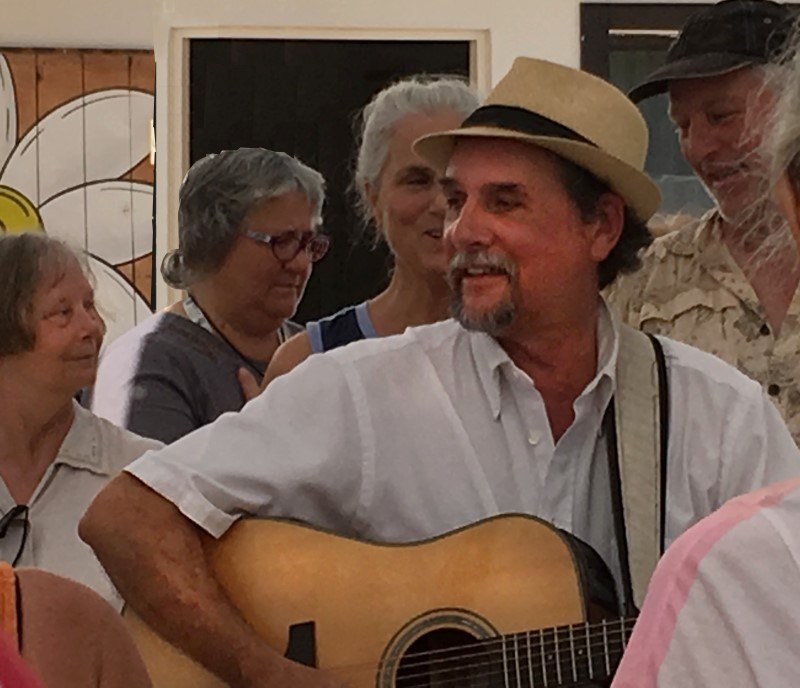
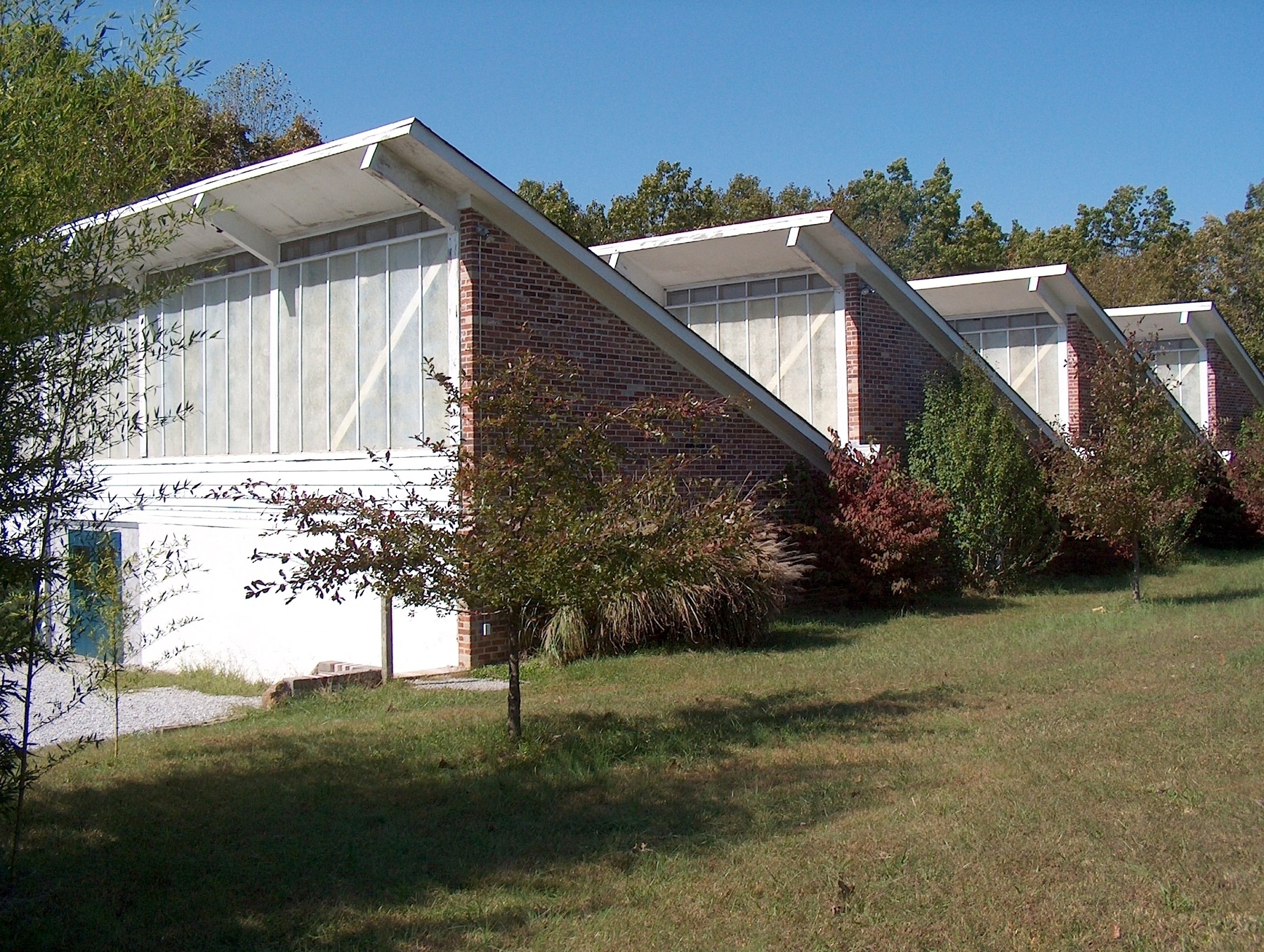

The Farm is also known for one of its most unique programs: its extremely successful midwifery. The Farm’s midwives are renowned for their skill in delivering babies, boasting some of the highest statistics on natural birth in the country. They are deeply committed to the idea that birth is a tremendously spiritual experience in anyone’s life, and they share this passion through midwifery workshops at The Farm and at the nearby College of Traditional Midwifery.
All of these facets make Farm dwellers proud of their historic home, so they have come to find joy in sharing it with others. Some residents rent out rooms in their houses so that visitors can experience their alternative lifestyle and take part in the sense of living in community. Many of the homes, including James and Judith’s Blueberry Lane House, Phil and Mary’s and Kissing Tree, allow visitors to live alongside farm residents, many of whom kindly offer to make a vegetarian breakfast for their guests.
“I encourage people to come during an event. Otherwise, we can be very quiet and spread out,” says Douglas. “On the third Saturday of every month from April to October, there is an open-air market day under a big dome by our store. It’s part farmers’ market, part flea market, part arts and crafts show, and it’s a way to see people mingling and kind of get the feel a bit.”
RELATED: Tomatoes, Tractors and Talking Dirt With the Female Farmers of Homestead Manor
Douglas also leads a number of workshops and retreats, which allow people to further immerse themselves in Farm life. Here, guests may experience some of the more eclectic traditions that come with the hippie lifestyle.
“I have begun leading an activity called the dances of universal peace,” says Douglas. “It’s singing sacred phrases from many different languages and cultures while dancing in a circle with simple movements anyone can learn right on the spot. It creates unity, they’re very uplifting, and it’s community building.”

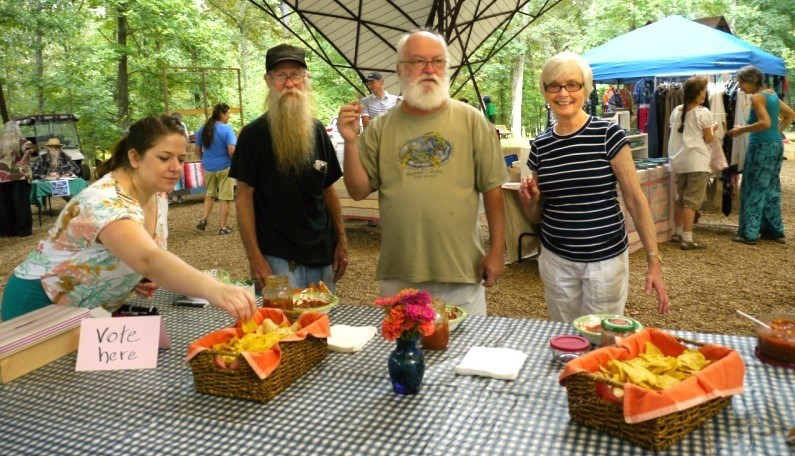
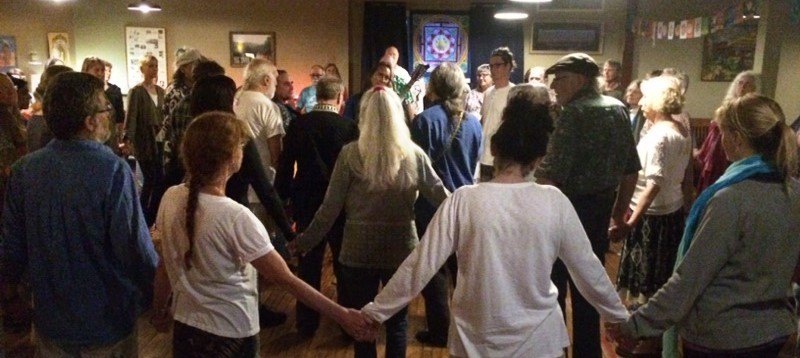
Swan Conservation Trust also offers hikes through The Farm land, which Douglas recommends as another great visiting opportunity. Best of all, this gets right back to why The Farm was founded in the first place — connecting with nature.
“We basically operate from the belief that we are stewards of the land, not owners of the land,” says Douglas. “We’re only here for a short amount of time, and it’s our responsibility as caretakers of the planet to leave it better than we found it.”
For more information on The Farm, including their basic beliefs, calendar of events and opportunities to visit, check out thefarmcommunity.com or their Facebook page. All photography provided by Douglas Stevenson.
**********
Subscribe to StyleBlueprint for your best “me moment” of the day. Click HERE!



















